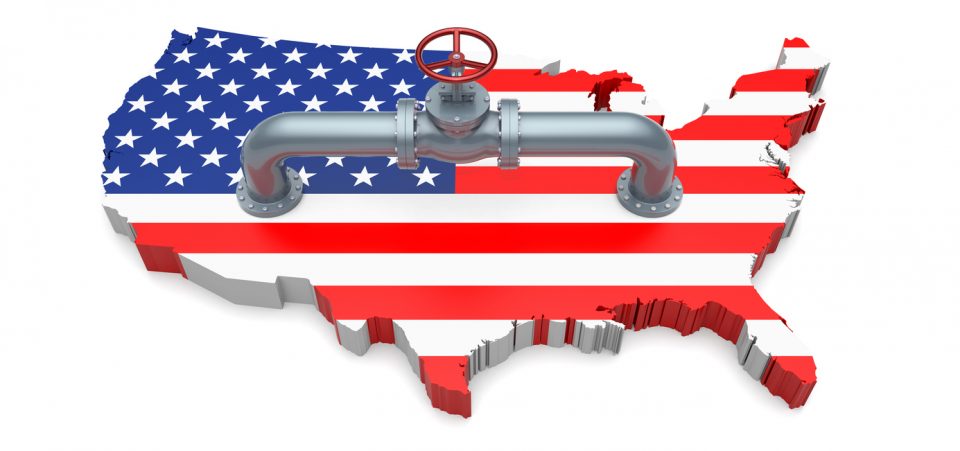New Executive Order Signals Trump is Pushing to Drain the Swamp
The tables have been turned. Having been in perpetual defense mode from the relentless negative media coverage and scrutiny stemming from Robert Mueller’s special investigation, President Donald Trump hit back. Cloaked under the cover of Christmas break, Trump invoked an executive order (EO) which could effectively “drain the swamp” and forever alter the way Washington operates. Crooked politicians and lobbyists are surely experiencing cold sweats.
Trump’s widely under-reported maneuver comes via an EO titled Blocking the Property of Persons Involved in Serious Human Rights Abuse or Corruption, issued on December 21, 2017. The details are sweeping, but it can essentially freeze the assets of government officials and both current and former executives of foreign corporations who have been found to have engaged in acts of corruption. This includes state assets, the expropriation of private assets for personal gain, and corruption related to government contracts or the extracting of natural resources. (Source: “Executive Order Blocking the Property of Persons Involved in Serious Human Rights Abuse or Corruption,” White House, December 21, 2017.)
Furthermore, anyone in the world who has “materially assisted, sponsored, or provided financial, material or technological support for, or goods or services” could have their assets frozen. (Source: Ibid.)
So, what does this all mean? On the face of it, the rejuvenated effort to crack down on public officials and lobbyists using public assets and influence for personal gain seems like a noble cause. Corruption has been rampant for decades and everyone realizes how corporate money has brokered influence peddling in Washington. This influence has extended throughout the world, where even the most despotic leaders are propped up for the right price.
But closer reading between the lines reveals this EO could be targeting Trump’s opponents, specifically Hillary Clinton, the Clinton Foundation, and her supporting cast enablers. The EO is written as such that it’s impossible to interpret individual dictates in another manner.
For example, the EO specifically targets “the expropriation of private assets for personal gain, and corruption related to government contracts or the extraction of natural resources.” Now call us cynical, but that seems very much like Trump has the Uranium One scandal in mind.
Recall that in 2010, the Obama administration approved a deal that allowed Russia to control up to 20% of potential U.S. uranium resources. Millions of dollars in “kickbacks” flowed to the Clinton Foundation, and Bill Clinton collected $500,000 for speeches in Moscow. Clinton has denied any wrongdoing naturally, but the whole situation wreaks of a conflict of interest. Many, including Donald Trump, are convinced that serious grave infractions have taken place, and are pushing an investigation into the manner. This EO targets both past and present violators, so the Clintons would be fair game. (Source: “Bill Clinton sought State’s permission to meet with Russian nuclear official during Obama uranium decision,” The Hill, October 19, 2017.)
Furthermore, the EO immediately added 13 foreign individuals to a list of “Specially Designated Nationals,” maintained by the Office of Foreign Assets Control. Several of the names have ties to the Clintons or direct Clinton interests. Moreover, the Treasury Department sanctioned an additional 39 people, for a total of 52 under the new order–including the son of Russia’s Prosecutor General. (Source: “New Trump Executive Order Targets Clinton-Linked Individuals, Lobbyists And Perhaps Uranium One,” ZeroHedge, December 27, 2017.)
The implications could even spill into the private sector. Trump’s use of language in the EO is such that the phrase “person” could be interpreted as a U.S. organization which merely employs a foreigner engaged in international corruption. Remember that in the U.S., people and corporations are considered “persons” in many areas of the law. This dates back to 1886, when the Supreme Court accepted the argument that corporations were people and that their money was protected by the due process clause of the 14th Amendment.
As such, the executive order makes real a hypothetical scenario where a corporate executive could have their assets frozen if a bribe to secure business contract with a foreign entity was proven. We all know behind the scenes that “Big Corporation” does it. This EO could fundamentally change how Big Corp. secures its business abroad, and perhaps level the playing field for smaller companies with less influencing power.
Does This Undercut Robert Mueller?
Potentially, yes. Remember that Robert Mueller was head of the FBI during the Uranium One debacle from September 2001 to September 2013. The FBI initiated an investigation into the matter in 2009, but found no impropriety and offered little scrutiny. This, despite the fact that Hillary Clinton reportedly pocketed $145.0 million in contributions to her foundation, which was 75% more than the foundation’s annual budget.
The FBI was in prime position to delay or scuttle the Uranium One deal if more resistance had been attempted back then. As New York Congressional Representative Peter King puts it, “It’s also the fact he was head of the FBI at a time we’ve been told an investigation is being conducted by the FBI as to bribery and collusion involving the Russians and yet, this was approved the Cabinet and the treasury secretary, secretary of state and the president.” (Source: “Peter King wants Robert Mueller to answer Congress’ questions about 2009 uranium deal,” Washington Examiner, October 29, 2017.)
Ultimately, if Trump’s executive order leads to prosecutions for past Uranium One discretions, Robert Mueller could get caught in the dragnet. This would undercut his authority to act according to the findings of his Special Council, even more so considering both then-U.S. Attorney Rod Rothstein and then-Assistant FBI Director Andrew McCabe are implicated in the affair. In essence, the EO could act as a backdoor gateway to undermine the Special Council without having to fire the main actors. At the very least, it acts as a heavy fog in the background.
Verdict
Done right at the end of the Congressional legislative session, Trump pulled an off-the-radar move in an effort to drain the swamp. Not only will his executive order reign in public/private lobbyist malfeasance, but it looks to also undercut Democrat influence peddling from years past. It’s not hard to view this EO as a pseudo-swipe at the Clinton empire without naming it directly. It also potentially hampers Robert Mueller’s credibility, should the Department of Justice sanctioning Mueller for his “involvement” in the Uranium One scandal.
Either way, the executive order finally looks like Trump is attempting to drain the swamp by confronting the problem through legislative means. The story is a much bigger deal than the surprisingly little coverage it has received.






